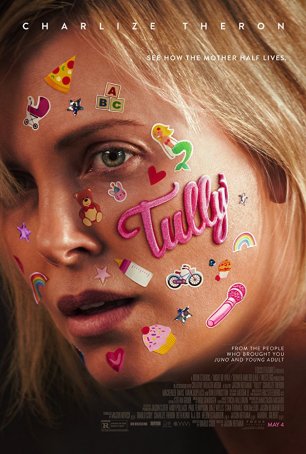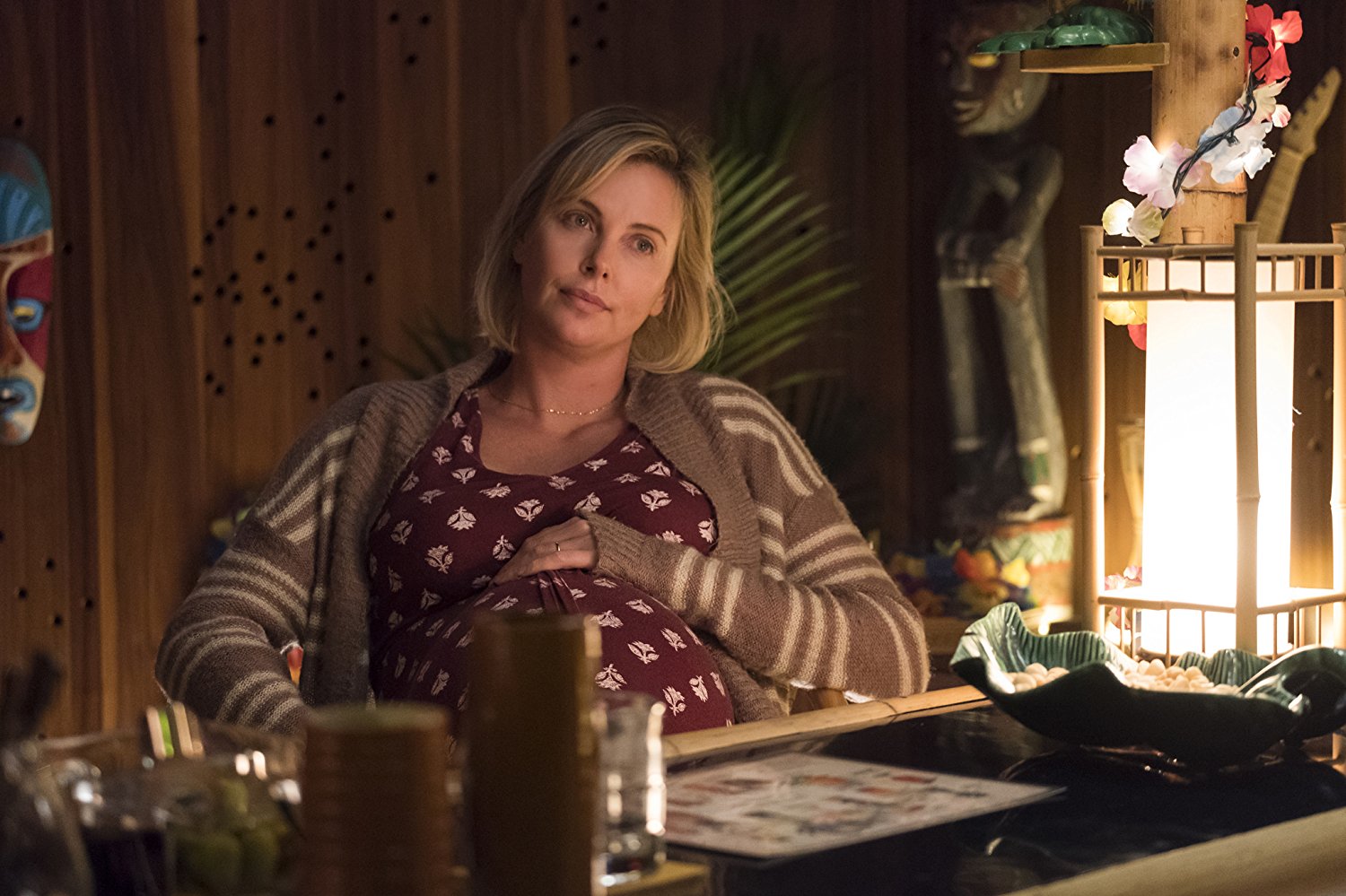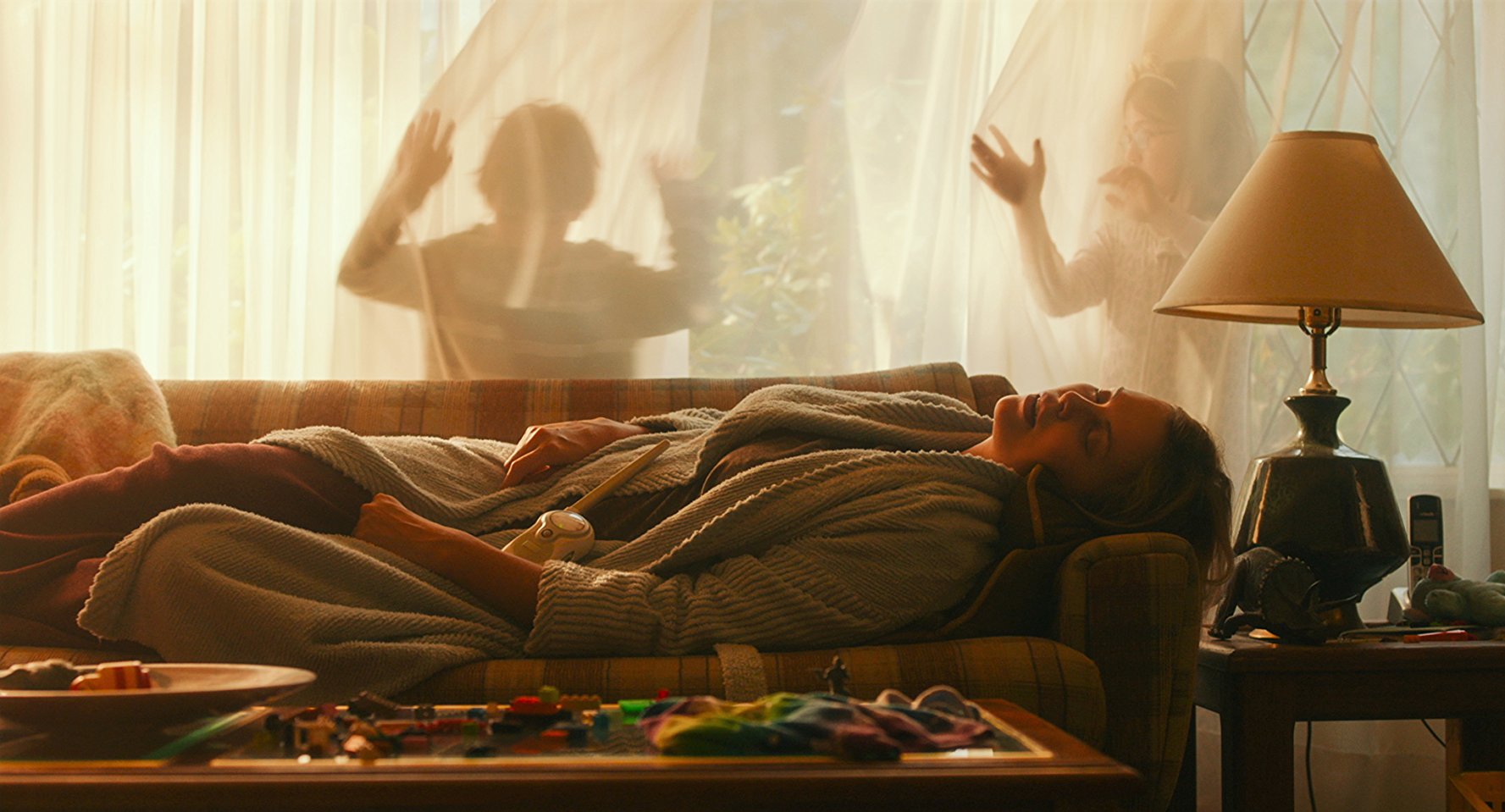Tully (United States, 2018)
May 03, 2018
Spoilers! Nothing is explicitly revealed but something is implied.
For about a half-hour, Tully is damn near brilliant. An incisive, relentless takedown of the myth of new parenting, Diablo Cody’s screenplay highlights the incessant crying, endless dirty diapers, and extreme sleep deprivation that accompany those first few months. The film’s approach isn’t as jokey as some films and derives much of its humor through the absurdity of reality. Recognition, not exaggeration, is the key ingredient. We laugh (perhaps ruefully) because we can relate. It’s the “been there, done that” commiseration that every parent, whether their kids are two months or fifty years old, experiences. Sadly, this quality doesn’t last. About a third of the way into Tully, the film hits a speed bump and never quite recovers. The big twist/reveal isn’t just contrived, it’s overused. Without getting into specifics, I have seen this particular plot device employed in no fewer than three other films released in the last three months.
Not since Monster has Charlize Theron transformed herself so thoroughly for a role. To what degree the weight gain is actual is irrelevant – she is entirely believable both as a full-term pregnant woman and a new mother. There’s no glamorizing involved here – at one point, her older daughter, catching a glimpse of her half-naked, asks her what happened to her body. After giving birth, Theron’s Marlo doesn’t suddenly drop 20 pounds and look like she’s ready to walk down a runway. She stumbles around the house in baggy clothing and eats junk food. Her exhaustion knows no bounds. She gains tunnel vision with her life revolving around her three children: “normal” 8-year old Sarah (Lia Frankland); 5-year old Jonah (Asher Miles Fallica), who appears to have a form of autism; and newborn Mia. She’s at her wits’ end when Tully (Mackenzie Davis) arrives.
 Tully is wish-fulfillment, the overworked mother’s fantasy.
She appears like fairy godmother – a “night nanny” (paid for by Tully’s rich
brother, played by Jay Duplass) whose purpose is to look after the baby from
late night until dawn, letting the parents sleep (except when Mom needs to
breast-feed). At first, Marlo is reluctant to turn her child over to a stranger
but there’s something calm and disarming about Tully. After the first night,
Marlo feels refreshed and she awakens to find the house cleaned and the baby
sound asleep. The second night, Tully makes cupcakes. A routine develops that transforms
Marlo back into a balanced, caring human being. She begins to bond with Tully,
even going so far as to allow the night nanny to help out in the bedroom with
her conventional husband, Drew (Ron Livingstone).
Tully is wish-fulfillment, the overworked mother’s fantasy.
She appears like fairy godmother – a “night nanny” (paid for by Tully’s rich
brother, played by Jay Duplass) whose purpose is to look after the baby from
late night until dawn, letting the parents sleep (except when Mom needs to
breast-feed). At first, Marlo is reluctant to turn her child over to a stranger
but there’s something calm and disarming about Tully. After the first night,
Marlo feels refreshed and she awakens to find the house cleaned and the baby
sound asleep. The second night, Tully makes cupcakes. A routine develops that transforms
Marlo back into a balanced, caring human being. She begins to bond with Tully,
even going so far as to allow the night nanny to help out in the bedroom with
her conventional husband, Drew (Ron Livingstone).
Once Tully enters the picture, the movie loses its edge. The narrative sputters, drifting without purpose, and the dialogue becomes conventional. The story starts to feel like an extended dream sequence and the logical gaps in the story – such as why Drew never goes downstairs to meet the woman who’s looking after his youngest child – are impossible to ignore. The fantasy becomes forced and, under Tully’s mystical influence, everything that feels so true-to-life early in the movie becomes artificial. None of this has anything to do with Mackenzie Davis’ performance. She imbues Tully with a fresh (albeit one-dimensional) buoyancy that reminded me of the hippie-go-lucky attitude of the young Jessica Lange in King Kong and Tootsie.
 Had I seen Tully a
couple of years ago, maybe I would have perceived the ending to be clever or
unexpected but, as I mentioned above, this has become a go-to plot contrivance
of far too many films that want to inject fantasy elements into an otherwise
“grounded” story: Double Lover,
Entanglement, Aardvark, and others. At the beginning of Tully, it seems like the screenwriter
(Cody) and director (Jason Reitman) have a clear path forward but, by the end,
that path has become overgrown and indistinct. Granted, movies don’t have to be
about anything but Tully is an especially muddled case.
Had I seen Tully a
couple of years ago, maybe I would have perceived the ending to be clever or
unexpected but, as I mentioned above, this has become a go-to plot contrivance
of far too many films that want to inject fantasy elements into an otherwise
“grounded” story: Double Lover,
Entanglement, Aardvark, and others. At the beginning of Tully, it seems like the screenwriter
(Cody) and director (Jason Reitman) have a clear path forward but, by the end,
that path has become overgrown and indistinct. Granted, movies don’t have to be
about anything but Tully is an especially muddled case.
This is Cody and Reitman’s third collaboration. The first, Juno, was an unqualified success with critics and audiences. The second, Young Adult (which also starred Theron), was a steep step down. Cody’s distinctive screenwriting voice, which shouted loudly in many of her early films, has been toned down for Tully. That’s not necessarily a good thing because, as overbearing as Cody’s snarky dialogue can be, it injects an element of energy into the proceedings. The second half of Tully goes down so smoothly with the excursion into fantasy-land that it feels like the production is on Prozac. Not what we expect from Cody or Reitman (who has been flailing since Up in the Air).
There are good reasons to see Tully. Theron’s performance is high on the list, as is that of Mackenzie Davis. The first 30 minutes are uncommonly good, which may be why the spike of disappointment is so acute when the film fails to maintain that level for its entire length. New mothers in particular may relish the wish-fulfillment and escapism Tully offers but that’s a narrow demographic. What may feel meaningful to a subset of viewers can seem rudderless to the rest. More often than not, Tully comes across as a group of relatable characters marooned in a story with nowhere to go.
Tully (United States, 2018)
Cast: Charlize Theron, Mackenzie Davis, Ron Livingstone, Jay Duplass, Elaine Tan
Home Release Date: 2018-07-31
Screenplay: Diablo Cody
Cinematography: Eric Steelberg
Music: Rob Simonsen
U.S. Distributor: Focus Features
U.S. Release Date: 2018-05-04
MPAA Rating: "R" (Profanity, Sexual Content, Nudity)
Genre: Comedy/Drama
Subtitles: none
Theatrical Aspect Ratio: 2.35:1
- (There are no more better movies of Ron Livingstone)
- (There are no more worst movies of Ron Livingstone)

Comments